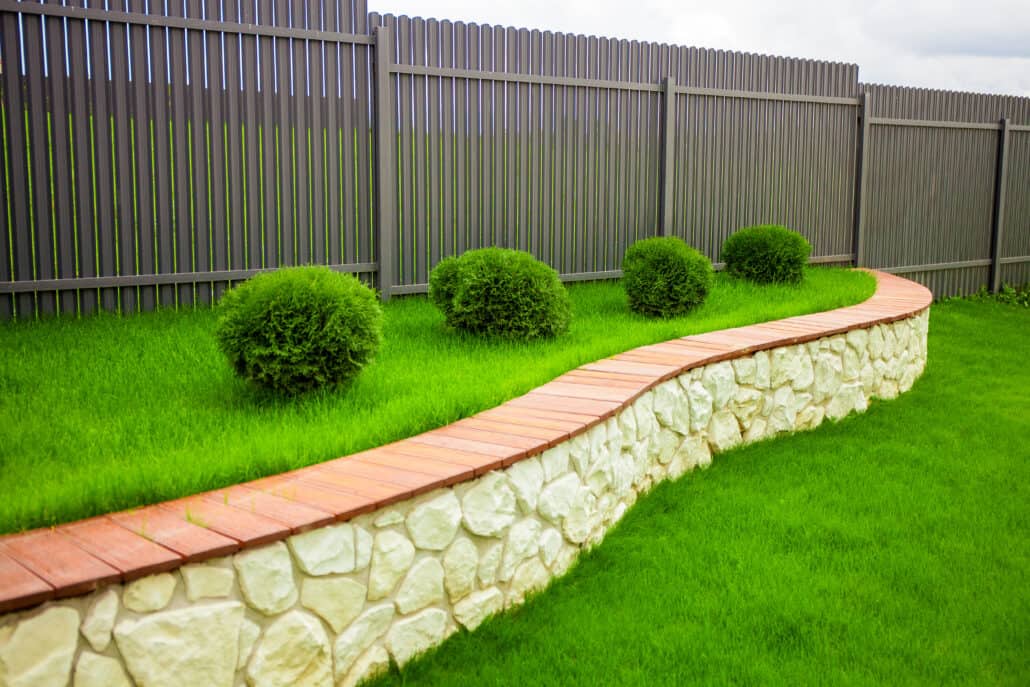All Categories
Featured

As sustainability becomes an increasingly crucial consideration for homeowners, more individuals are transforming to green fence products. Whether you're constructing a fencing for privacy, protection, or visual objectives, selecting products that reduce ecological effect is a terrific means to add to a much healthier earth. Here's an appearance at the leading environmentally friendly fencing materials available today and their advantages.
- Bamboo Fencing: Sustainable and fast-growing. Bamboo is just one of the most lasting fence products on the marketplace. Unlike traditional timber, bamboo is exceptionally fast-growing, which suggests it can be gathered without diminishing forests. This makes it an extremely eco-friendly source, with some species maturing to 3 feet in a single day.
Environmental Benefits: Bamboo soaks up more co2 than numerous various other plants, helping to balance out greenhouse gases. Its quick growth rate indicates it can be harvested routinely, making it an eco-friendly material. Sturdiness: Bamboo fencings are normally immune to insects and degeneration, particularly when properly dealt with, reducing the requirement for chemical treatments. Visual Allure: Bamboo supplies a special, all-natural look that enhances both modern and typical landscaping styles. Nonetheless, while bamboo is an excellent option, it is very important to make certain that the bamboo utilized is responsibly sourced to prevent adding to ecological deterioration.
- Recycled Steel Fencing: Multiple-use and long lasting. Recycled steel fencing, such as light weight aluminum or steel, offers an environment-friendly alternative to conventional wood fences. These metals are frequently made from recycled materials, reducing the need for brand-new mining and the environmental influence related to removing basic materials.

Ecological Benefits: Metals like light weight aluminum and steel are 100% recyclable, meaning they can be reused and repurposed forever without losing quality. Sturdiness: Metal fences are exceptionally resilient, resistant to weather, parasites, and wear, making them a lasting option that does not require to be replaced regularly. Reduced Maintenance: Recycled metal fences call for very little maintenance and don't require to be repainted or sealed regularly, lowering the demand for added chemicals. The main drawback is that steel fences might not supply the very same personal privacy as timber or vinyl alternatives, as they can have spaces depending on the design.
- Recycled Timber Fencing: Natural and sustainable. For those who love the classic look of wood however want a green option, recycled timber fencing is an excellent option. This material is made from redeemed wood from old structures, pallets, and even furniture, diverting these materials from landfills.
Ecological Benefits: Using recycled timber avoids the need to reduce down brand-new trees, assisting to minimize and conserve forests deforestation. Visual Allure: Recycled timber supplies a rustic, natural appearance and can be customized to match any kind of home style. Sustainability: Because it is sourced from existing wood products, recycled timber doesn't require brand-new handling, which lowers power usage and carbon exhausts. While recycled wood fences are an environment-friendly choice, they might call for even more upkeep with time than metal or bamboo fences, as wood can be prone to degeneration and parasites otherwise effectively treated.

- Living Fencings: Natural and Environment-friendly. Living fencings, which are made from thick plantings like hedges, trees, or hedges, offer a green and totally natural option to standard fence products. These fencings not just give privacy however also improve your yard with attractive plant.
Ecological Benefits: Living fencings can soak up carbon dioxide, give environment for wildlife, and enhance air high quality. Noise Decrease: Dense growings can work as all-natural sound barriers, minimizing web traffic sound or other unwanted audios. Aesthetic Charm: They include a soft, natural aesthetic to any kind of building and can be customized to fit any kind of layout. While living fences are environment-friendly, they do need regular upkeep such as trimming, watering, and sometimes pest control.
- Hemp Secure Fencing: Strong and naturally degradable. Hemp is one more lasting material that has made its way into the fencing industry. Hemp fencings are made from solid hemp fibers that are woven with each other to produce durable and environment-friendly panels.
Ecological Benefits: Hemp grows swiftly and requires minimal water, making it a resource-efficient plant. The material is eco-friendly and can be composted when no longer needed. Strength and Durability: Hemp fence is weather-resistant and surprisingly strong, making it ideal for lots of environments. Sustainability: Hemp farming requires less chemicals and plant foods than conventional crops, making it an ecologically liable alternative. Hemp fencing may not be as extensively available as various other materials, depending on your place.
Final Thought: Lasting Selections for Every Demand. Picking eco-friendly fencing products is a great method to minimize your ecological impact while still accomplishing the privacy, safety, and visual you want. From fast-growing bamboo to recycled wood and steel, there are a range of sustainable options that can help you develop a stunning, useful fencing while sustaining a much healthier world. By thinking about factors such as sturdiness, maintenance, and ecological effect, you can select the most effective eco-friendly fence material for your demands and way of living.
Latest Posts
Secure and Enhance Your Home with Weathercraft's Home siding Solutions
Published May 10, 25
1 min read
Discover Trusted Eye Care Solutions in the Dothan Area with Eye Center South
Published May 10, 25
1 min read
Restore with Eye Surgery in Your Area at Eye Center South
Published May 10, 25
1 min read
More
Latest Posts
Secure and Enhance Your Home with Weathercraft's Home siding Solutions
Published May 10, 25
1 min read
Discover Trusted Eye Care Solutions in the Dothan Area with Eye Center South
Published May 10, 25
1 min read
Restore with Eye Surgery in Your Area at Eye Center South
Published May 10, 25
1 min read